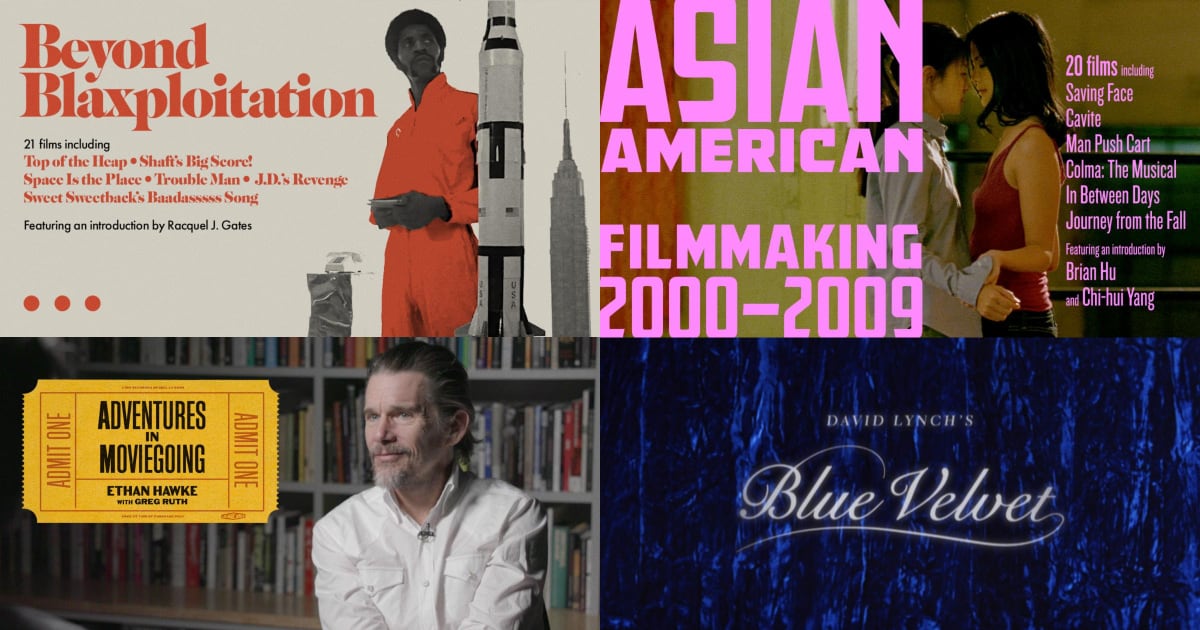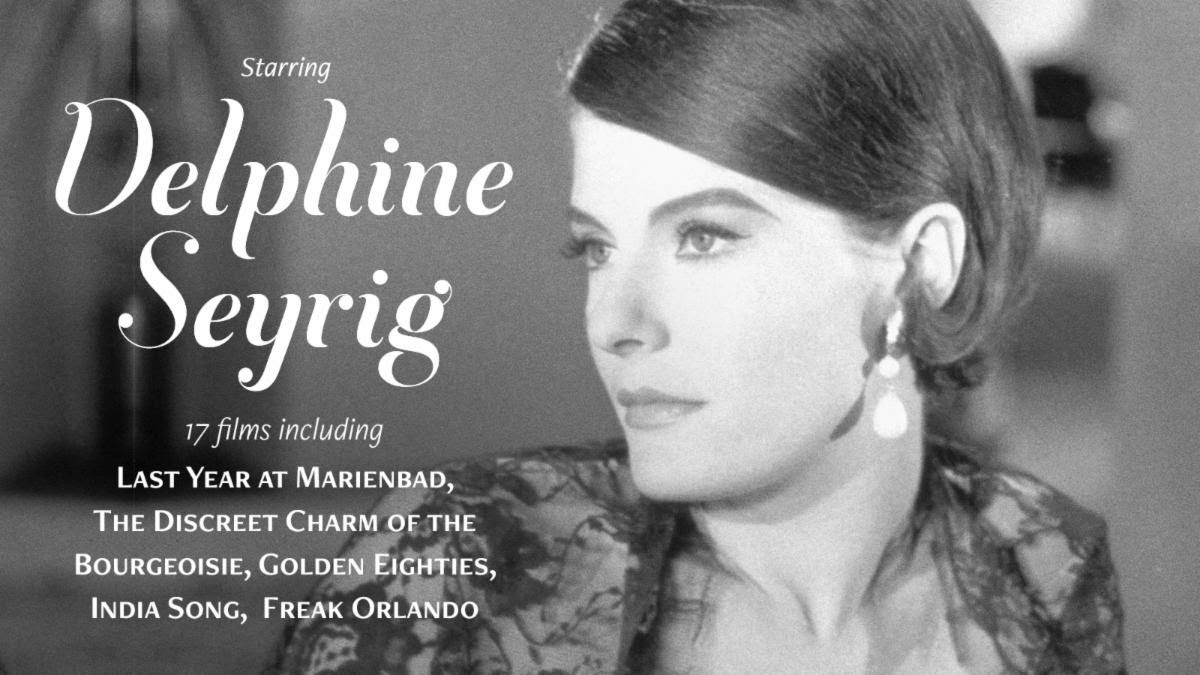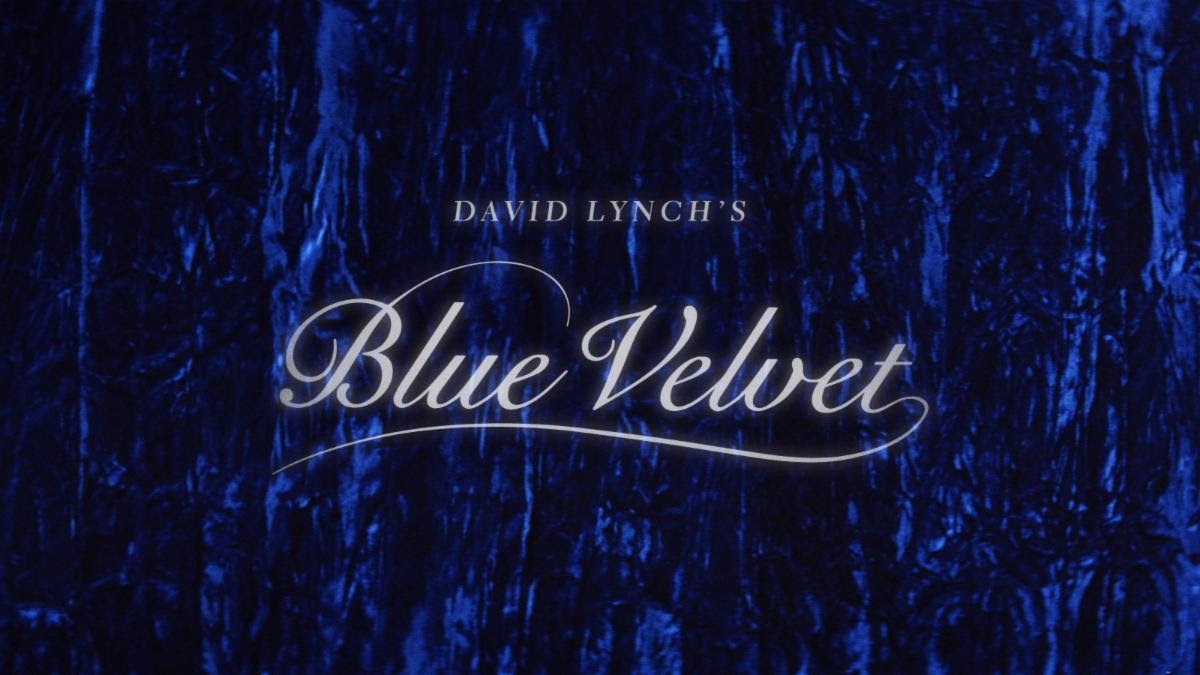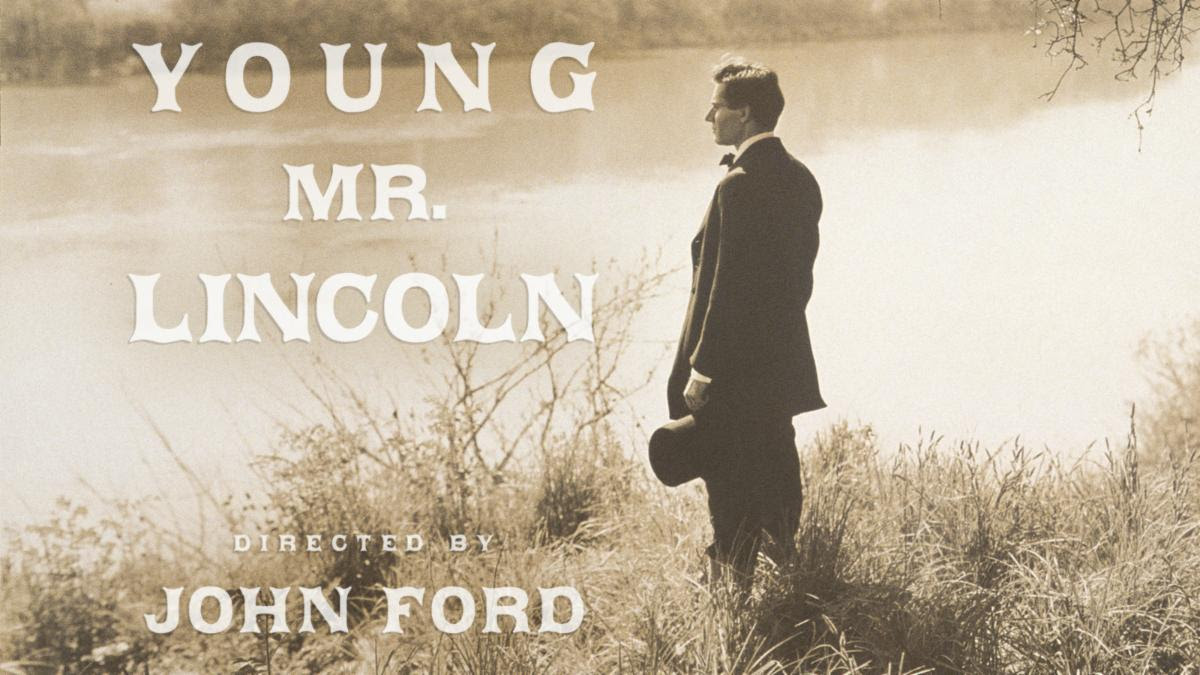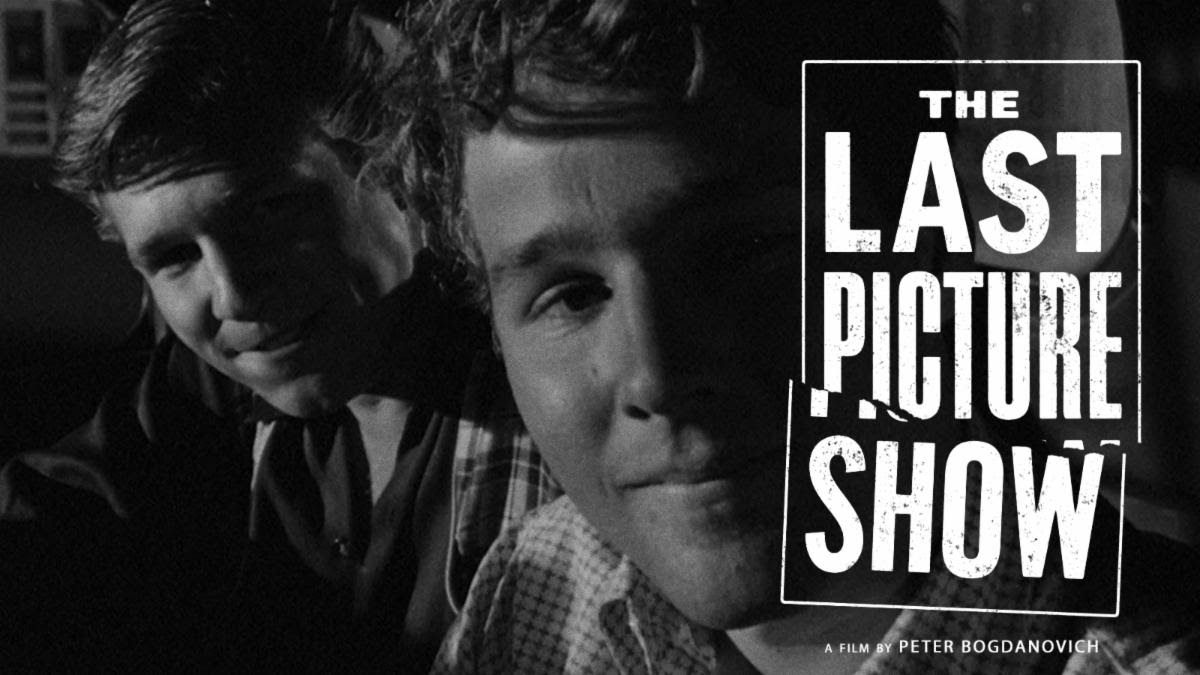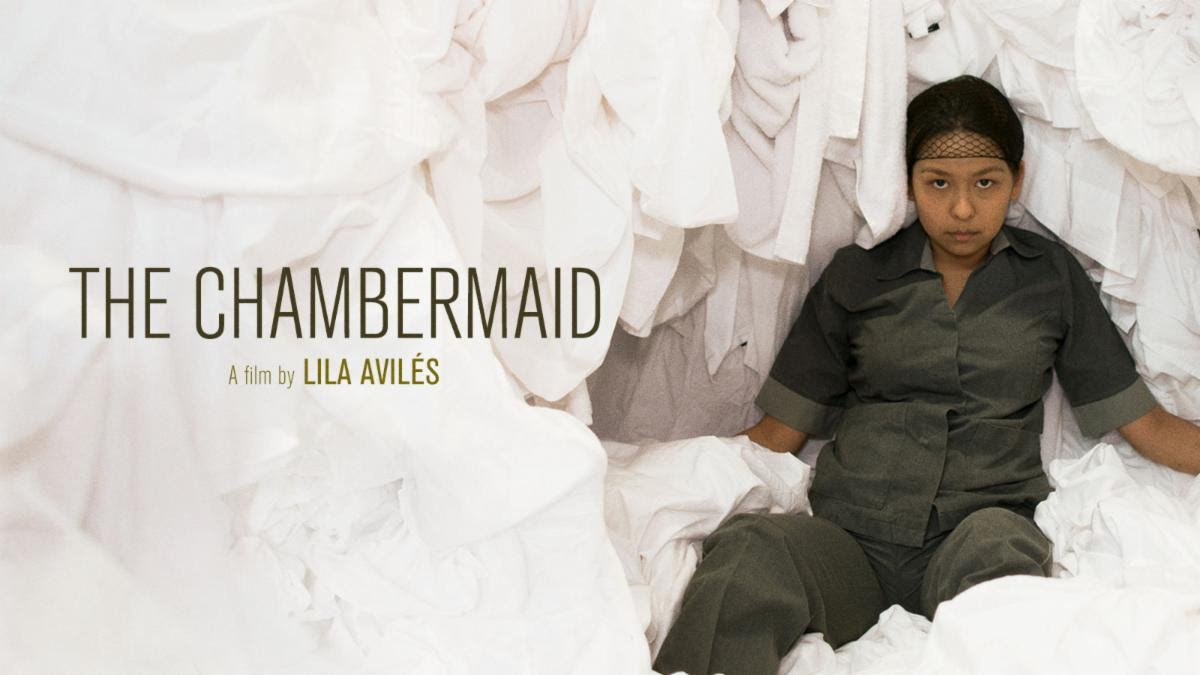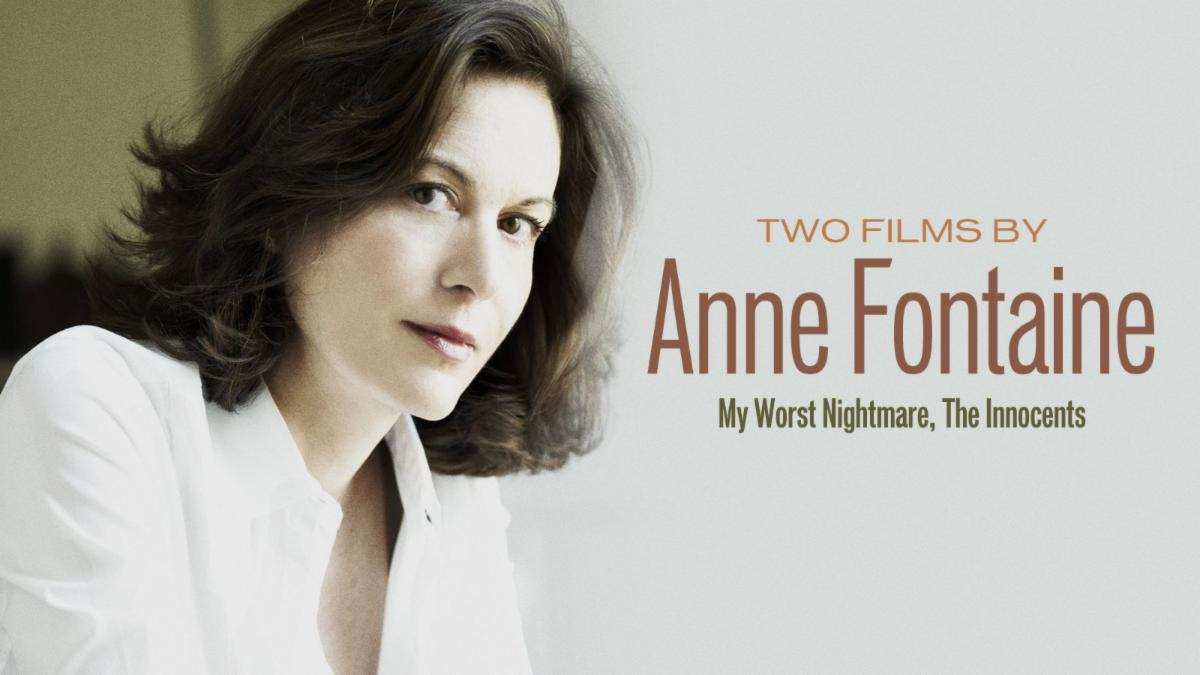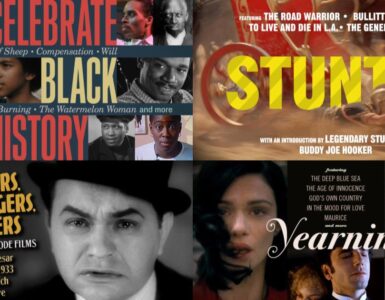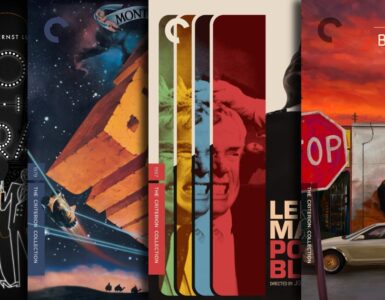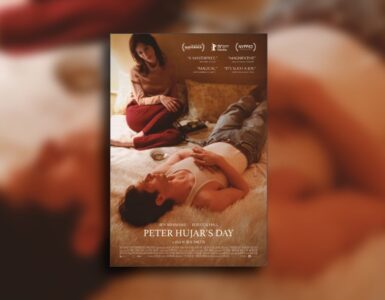Each month, the programmers at the Criterion Channel produce incredible line-ups for their subscribers. For April, the Channel will feature films from John Ford, Guru Dutt, Anne Fontaine, and more!
Below you’ll find the programming schedule for the month, along with a complete list of titles that Criterion has in store for us. Don’t forget to check the Criterion Channel’s main page regularly though, as they occasionally will drop surprises that aren’t included in the official press release.
Don’t subscribe yet? Start a 14-day free trial
TOP STORIES
Premiering April 1
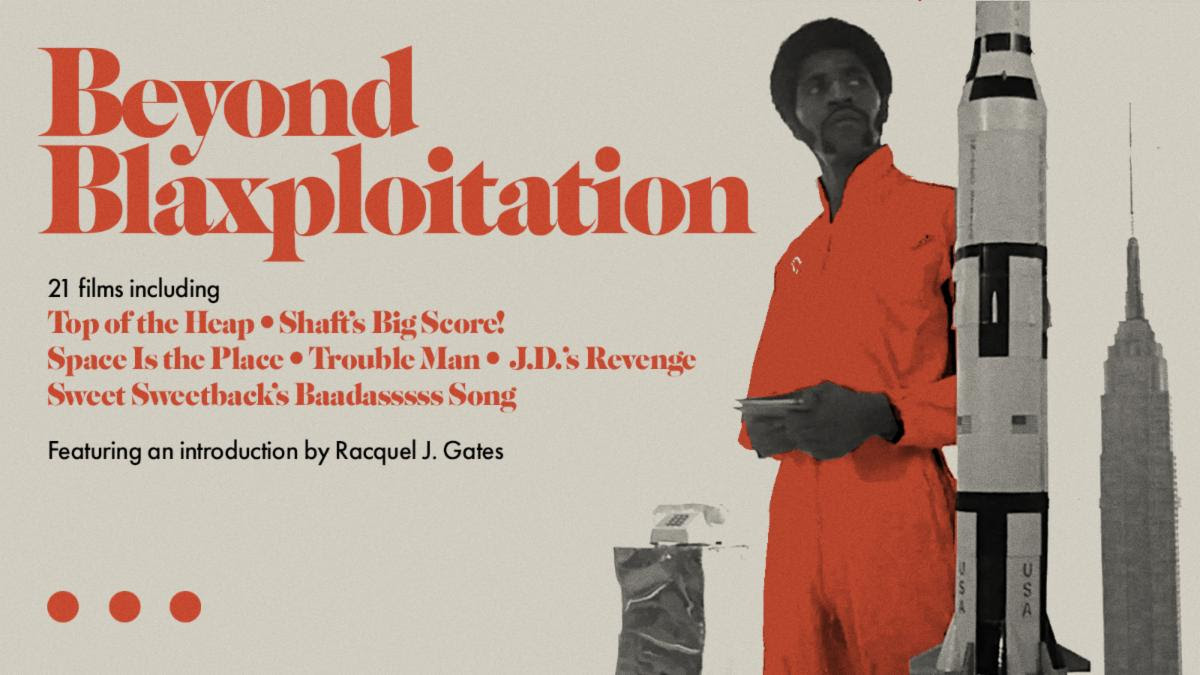
Beyond Blaxploitation
Featuring a new introduction by film scholar Racquel J. Gates
Beginning in the early 1970s, a wave of so-called blaxploitation cinema, with one foot in exploitation thrills and one foot in avant-garde provocation, sent shockwaves through American film audiences. Though the term was originally deployed to criticize sensationalized images of African Americans, there was far more to the blaxploitation boom than mere stereotypes: it cemented a new generation of stars for the Black-is-beautiful era (Pam Grier, Richard Roundtree) while creating vital opportunities for daring Black filmmakers. The two sides of an often-misunderstood movement are on display in this survey of pulp classics and blaxploitation-adjacent rarities, which brings together kick-ass action extravaganzas like Shaft’s Big Score!, Truck Turner, and Friday Foster, as well as unclassifiable, mind-expanding films such as Space Is the Place, the recently rediscovered Top of the Heap, and Lord Shango, which defy genre by incorporating elements of Afrofuturism, surrealism, psychedelia, and Black mysticism. Taken together, they offer a fuller picture of a time when Black artists both in front of and behind the camera were breaking political and aesthetic boundaries to reclaim their image on-screen.
- Sweet Sweetback’s Baadasssss Song, Melvin Van Peebles, 1971
- Across 110th Street, Barry Shear, 1972
- Shaft’s Big Score!, Gordon Parks, 1972
- Top of the Heap, Christopher St. John, 1972
- Trouble Man, Ivan Dixon, 1972
- Black Caesar, Larry Cohen, 1973
- Cleopatra Jones, Jack Starrett, 1973 **
- Black Belt Jones, Robert Clouse, 1974
- Coonskin, Ralph Bakshi, 1974 *
- Space Is the Place, John Coney, 1974
- Sugar Hill, Paul Maslansky, 1974
- Three the Hard Way, Gordon Parks Jr., 1974
- Thomasine and Bushrod, Gordon Parks Jr., 1974
- Truck Turner, Jonathan Kaplan, 1974
- Dolemite, D’Urville Martin, 1975 *
- Friday Foster, Arthur Marks, 1975
- Lord Shango, Ray Marsh, 1975 *
- J.D.’s Revenge, Arthur Marks, 1976
- Abar, the First Black Superman, Frank Packard, 1977 *
- Petey Wheatstraw, Cliff Roquemore, 1977 *
- Original Gangstas, Larry Cohen, 1996
*Available May 1
**Available June 1
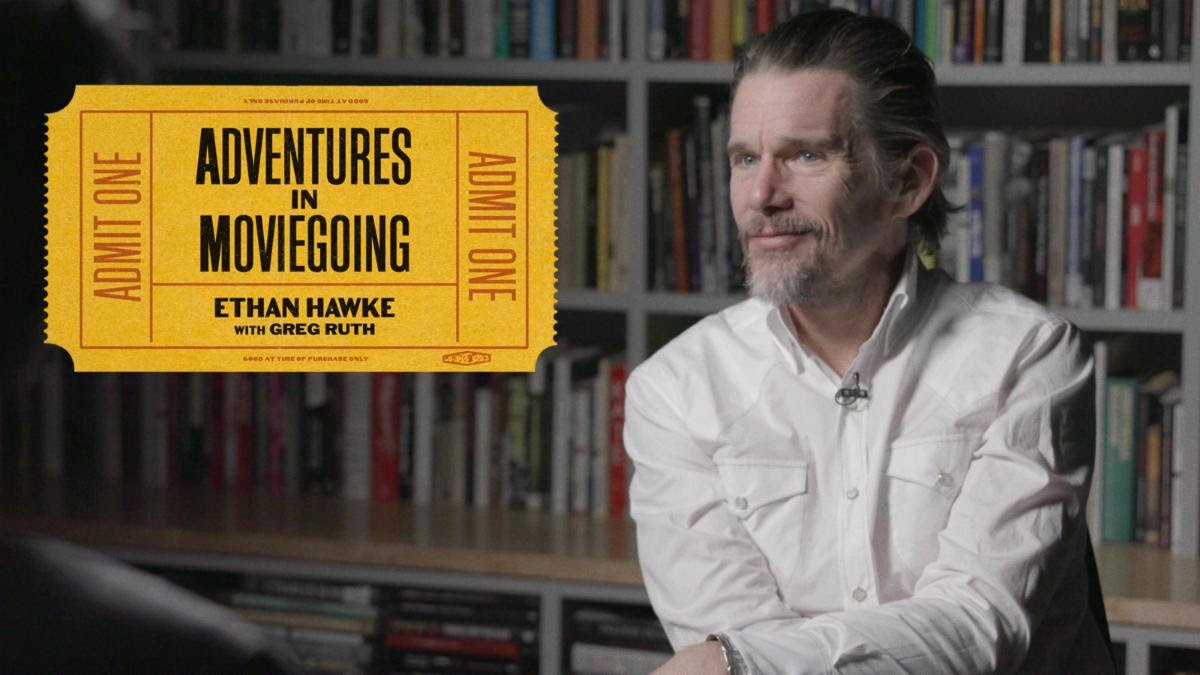
Adventures in Moviegoing with Ethan Hawke
The thinking man’s movie star, Ethan Hawke has moved seamlessly between mainstream hits and acclaimed passion projects for directors such as Richard Linklater and Paul Schrader ever since breaking into Hollywood at age fourteen, garnering Academy Award nominations for both acting and screenwriting along the way. In this edition of Adventures in Moviegoing, Hawke sits down with his friend and collaborator, artist and author Greg Ruth, to discuss why the first movie he ever saw is still his favorite, how the rise of video-store culture shaped his view of cinema, and which films he would have given anything to have been on set for while they were being made. The films that the Texan-born Hawke has curated reflect his Lone Star State roots and include offbeat revisionist westerns from John Huston and Robert Altman and an independent gem from Eagle Pennell, the unsung pioneer of Austin’s indie scene.
- Limelight, Charlie Chaplin, 1952
- Lola, Jacques Demy, 1961
- Faces, John Cassavetes, 1968
- The Blues Accordin’ to Lightnin’ Hopkins, Les Blank, 1970
- The Life and Times of Judge Roy Bean, John Huston, 1972
- Buffalo Bill and the Indians, or Sitting Bull’s History Lesson, Robert Altman, 1976
- Last Night at the Alamo, Eagle Pennell, 1983
- 4 Months, 3 Weeks and 2 Days, Cristian Mungiu, 2007
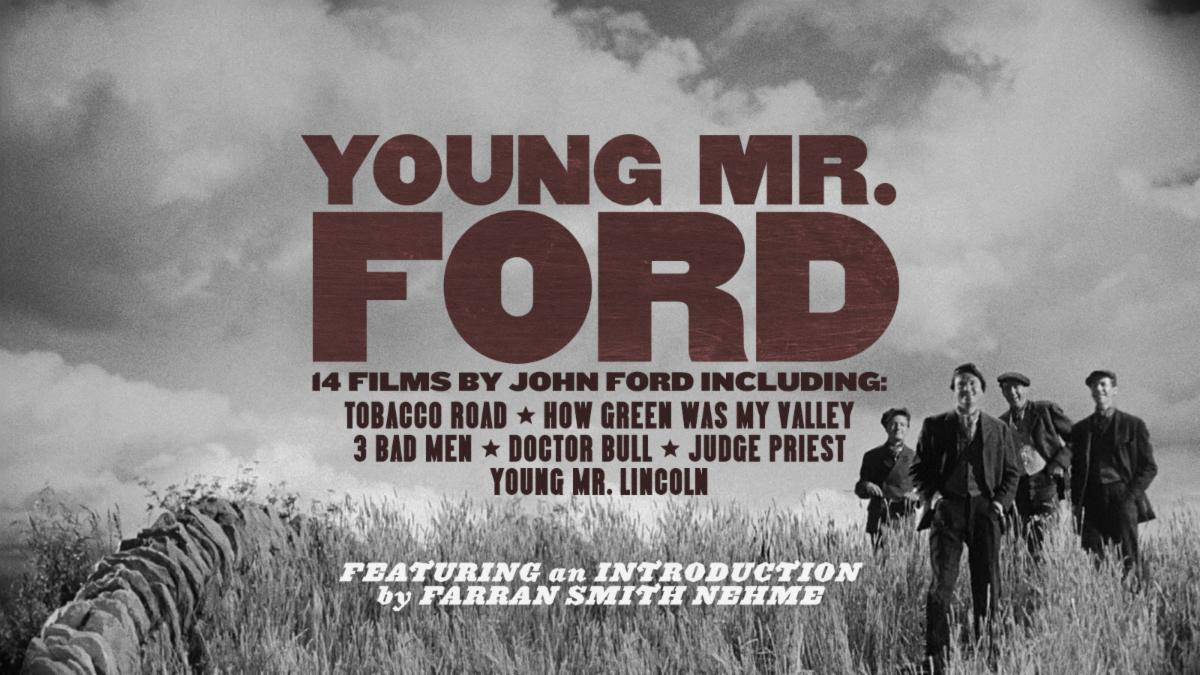
Young Mr. Ford
Featuring a new introduction by critic Farran Smith Nehme
As Shakespeare was to the British theater, John Ford was to the American cinema, establishing the themes—of heroism, honor, history as myth, and the conflict between the individual and the community—that would come to shape the country’s cultural imagination. This selection of often-overlooked gems from Twentieth Century-Fox—a studio that specialized in the kind of lyrical Americana that was Ford’s forte—traces the evolution of the filmmaker’s style in its formative years, before he was known primarily as a director of westerns. From the masterful interplay of landscape and character in the silent western 3 Bad Men to the the emotional devastation of the powerful post-WWI melodrama Pilgrimage to the gentle humanist comedy of Steamboat Round the Bend, these films show how Ford left an unmistakable imprint on every genre he touched.
- Kentucky Pride, 1925
- 3 Bad Men, 1926
- Four Sons, 1928
- The Black Watch, 1929
- Born Reckless, 1930
- Men Without Women, 1930
- Pilgrimage, 1933
- Doctor Bull, 1933
- Judge Priest, 1934
- The World Moves On, 1934
- Steamboat Round the Bend, 1935
- Young Mr. Lincoln, 1939
- How Green Was My Valley, 1941
- Tobacco Road, 1941
Starring Delphine Seyrig
One of the most mesmerizing presences in European art-house cinema, Delphine Seyrig was a favorite of visionary directors such as Chantal Akerman (Jeanne Dielman, 23, quai du commerce, 1080 Bruxelles), Alain Resnais (Last Year at Marienbad), Marguerite Duras (India Song), Luis Buñuel (The Discreet Charm of the Bourgeoisie), and Ulrike Ottinger (Freak Orlando), bringing an air of ethereal mystery to her minutely detailed performances. Yet Seyrig bucked against the muse role that the era’s filmmaking offered her: her penchant for working with women auteurs was an extension of her feminist politics, which she also expressed in her often-overlooked directorial work, including the revealing documentary Be Pretty and Shut Up!, about the experiences of actresses working in a sexist, male-dominated film industry.
- Last Year at Marienbad, Alain Resnais, 1961
- Muriel, or The Time of Return, Alain Resnais, 1963
- Accident, Joseph Losey, 1967
- Stolen Kisses, François Truffaut, 1968
- The Milky Way, Luis Buñuel, 1969
- Mr. Freedom, William Klein, 1969
- Donkey Skin, Jacques Demy, 1970
- Daughters of Darkness, Harry Kümel, 1971
- The Discreet Charm of the Bourgeoisie, Luis Buñuel, 1972
- A Doll’s House, Joseph Losey, 1973
- India Song, Marguerite Duras, 1975
- Jeanne Dielman, 23 quai du Commerce, 1080 Bruxelles, Chantal Akerman, 1975
- Be Pretty and Shut Up!, Delphine Seyrig, 1976
- Baxter, Vera Baxter, Marguerite Duras, 1977
- Freak Orlando, Ulrike Ottinger, 1981
- Golden Eighties, Chantal Akerman, 1986
- Seven Women, Seven Sins, Chantal Akerman, Maxi Cohen, Valie Export, Laurence Gavron, Bette Gordon, Ulrike Ottinger, and Helke Sander, 1986
- Joan of Arc of Mongolia, Ulrike Ottinger, 1989*
*Available May 1
Asian American Filmmaking 2000–2010
Featuring a new introduction by series programmers Brian Hu and Chi-hui Yang
The first decade of the twenty-first century witnessed an explosion of Asian American cinematic creativity, much of which went unseen by mainstream audiences. Politically complex and formally innovative, these films highlighted the intricacies of diverse communities shaped by a multitude of forces: colonialism, migration, racism, subcultures, gentrification, war, and the politics of appropriation and assimilation. Curated by Chi-hui Yang and Brian Hu, this program spotlights films that take an inventive approach to genre—personal documentary (I Was Born, But … ), musical (Colma: The Musical), thriller (Cavite), coming-of-age odyssey (In Between Days), and beyond—revealing a rich and radical counter-cinema forged by artists still fighting for visibility.
- First Person Plural, Deann Borshay Liem, 2000
- Better Luck Tomorrow, Justin Lin, 2002*
- Refugee, Spencer Nakasako, 2003
- Saving Face, Alice Wu, 2004
- I Was Born But …, Roddy Bogawa, 2004
- Cavite, Neill Dela Llana and Ian Gamazon, 2005
- Man Push Cart, Ramin Bahrani, 2005
- In Between Days, So Yong Kim, 2006
- Journey from the Fall, Ham Tran, 2006
- Punching at the Sun, Tanuj Chopra, 2006
- Colma: The Musical, Richard Wong, 2006
- The Betrayal, Thavisouk Phrasavath and Ellen Kuras, 2008
Shorts
- Pirated, Nguyen Tan Hoang, 2000
- Barrier Device, Grace Lee, 2002
- Balikbayan, Larilyn Sanchez and Riza Manolo, 2004
- Sangam, Prashant Barghava, 2004
- Summer of the Serpent, Kimi Takesue, 2004
- Windowbreaker, Tze Chun, 2006
- Going Home, Hung Nguyen, 2006
- In Space, Visra Vichit-Vadakan, 2009
*Available August 1
The World of Guru Dutt
Featuring a new introduction by filmmaker Mira Nair and In Search of Guru Dutt, a 1989 documentary by Nasreen Munni Kabir
Hailed as “the Orson Welles of Indian cinema” for his striking visual style and ability to weave deeply personal themes into mainstream entertainment, director-producer-actor Guru Dutt left behind some of the most revered works of his country’s national cinema in a short but immensely influential career. As an actor he brought a brooding melancholy to popular Hindi film, often playing a soulful outsider wounded by a callous world. Behind the camera, he was a dramatist and visual stylist of rare sophistication, drawing on his background as a choreographer to unleash tidal waves of emotion in his musical sequences and harnessing light and shadow to achieve stunning compositions with his virtuoso cinematographer V. K. Murthy. Though he died tragically young at age thirty-nine, his films—including the powerful portrait of artistic struggle Pyaasa and the fascinatingly self-reflexive Paper Flowers (the commercial failure of which effectively ended Dutt’s directorial career even as it has since been reclaimed as a classic)—live on as masterpieces of poetic expression.
- Baaz, Guru Dutt, 1953
- Aar paar, Guru Dutt, 1954
- Mr. & Mrs. ’55, Guru Dutt, 1955
- Pyaasa, Guru Dutt, 1957
- Paper Flowers, Guru Dutt, 1959
- Chaudhvin ka chand, M. Sadiq, 1960
- Sahib bibi aur ghulam, Abrar Alvi, 1962
EXCLUSIVE STREAMING PREMIERES
Friday, April 1
France
Léa Seydoux brilliantly holds the center of Bruno Dumont’s unexpected, unsettling film, which starts out as a satire of the contemporary news media before steadily spiraling out into something richer and darker. Never one to shy away from provoking his viewers, Dumont casts Seydoux as France de Meurs, a seemingly unflappable superstar TV journalist whose career, homelife, and psychological stability are shaken after she carelessly drives into a young delivery man on a busy Paris street. This accident triggers a series of self-reckonings, as well as a strange romance that proves impossible to shake. A film that teases at redemption while refusing to grant absolution, France is tragicomic and deliciously ambivalent—a very twenty-first-century treatment of the difficulty of maintaining identity in a corrosive culture.
Monday, April 4
Bring Down the Walls
Art and activism collide in this empowering documentary, which examines the injustices of America’s prison-industrial complex and the power of house music as a catalyst for human connection, transformation, and liberation. A collaboration between filmmaker Phil Collins and the Black, Latino, and queer artists, activists, and formerly incarcerated people who, in 2018, created a temporary space in downtown Manhattan that served as both a hub for prison-abolition organizing and a venue for exhilarating dance parties, Bring Down the Walls proposes a vision of social justice in which collective action and communal celebration are inextricably entwined.
Thursday, April 14
Wheel of Fortune and Fantasy
An unexpected love triangle, a failed seduction, and a chance encounter with the past. Propelled by coincidence and imagination, and guided by love’s gentle current, acclaimed director Ryusuke Hamaguchi (Oscar-nominated for Drive My Car) presents an enchanting triptych that spins mundane encounters into a world of infinite possibilities. In “Episode 1: Magic (or Something Less Assuring),” a young woman is startled when she realizes that her best friend’s new flame might just be her ex; in “Episode 2: Door Wide Open,” a disgruntled student plots to trick his college professor, using his friend-with-benefits as bait; and in “Episode 3: Once Again,” a young woman’s college reunion leads to an unanticipated run-in with an old friend, and awakens feelings long since forgotten. Playfully inspired by life’s tiny miracles and bound together by memory, regret, deception, and fate, this collection of stories leaves no stone unturned as Hamaguchi plumbs the ever-deepening mysteries of the all-too-human heart.
CRITERION EDITIONS
Premiering April 1
Blue Velvet: Criterion Collection Edition #977
David Lynch burrows deep beneath the picturesque surfaces of small-town life in this haunting vision of innocence lost.
SUPPLEMENTAL FEATURES: The Lost Footage, fifty-three minutes of deleted scenes and alternate takes assembled by Lynch; a feature-length meditation on the making of the film made on-set by Peter Braatz; an interview with composer Angelo Badalamenti; and more.
Last Year at Marienbad: Criterion Collection Edition #478
Alain Resnais’s legendary cinematic puzzle is not just a defining work of the French New Wave but one of the great, lasting mysteries of modern art.
SUPPLEMENTAL FEATURES: Interviews with Renais and film scholar Ginette Vincendeau, a documentary on the making of the film, and two shorts by Renais.
Young Mr. Lincoln: Criterion Collection Edition #320
Henry Fonda delivers one of his defining performances as the young president-to-be in this compassionate and assured slice of Americana from John Ford.
SUPPLEMENTAL FEATURES: Audio commentary by film scholar Joseph McBride, audio interviews with Ford and Fonda, and a radio dramatization of the film.
Ministry of Fear: Criterion Collection Edition #649
Suffused with dread and paranoia, this Fritz Lang adaptation of a novel by Graham Greene is a plunge into the eerie shadows of a world turned upside down by war.
SUPPLEMENTAL FEATURES: An interview with Lang scholar Joe McElhaney.
The Last Picture Show: Criterion Collection Edition #549
Peter Bogdanovich’s aching portrait of a dying West stands as one of the key films of the American cinema renaissance of the seventies.
SUPPLEMENTAL FEATURES: Two audio commentaries featuring Bodganovich and cast members, two documentaries about the making of the film, a Q&A with Bodganovich, and more.
THREE DIMENSIONS
Monday, April 28
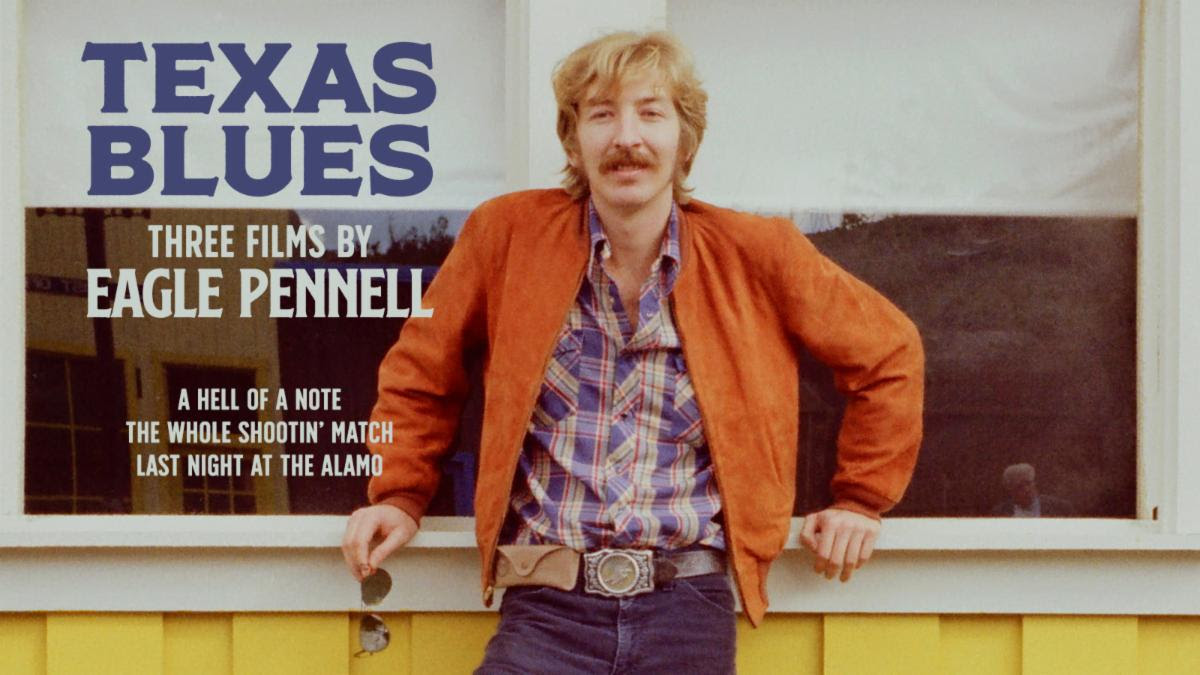
Texas Blues: Three Films by Eagle Pennell
Featuring the 2008 documentary The King of Texas
Long before Austin, Texas, was an epicenter for all things indie, maverick filmmaker Eagle Pennell made his mark on the city with a handful of bittersweet, amiably lo-fi looks at the everyday oddballs populating the Lone Star State. Though he only completed a handful of films before his untimely death at age forty-nine, their rough-hewn charm and genuine feeling for working-class camaraderie set the template for a whole generation of off-the-grid auteurs (including fellow Austinite Richard Linklater and Quentin Tarantino, who cited Pennell as a key influence on Reservoir Dogs) and inspired none other than Robert Redford to found the Sundance Institute in order to perpetuate the spirit of cinematic independence that Pennell embodied.
- A Hell of a Note, 1977
- The Whole Shootin’ Match, 1978
- Last Night at the Alamo, 1983
WOMEN FILMMAKERS
Wednesday, April 6
The Chambermaid
Lila Avilés turns the monotonous workday of a chambermaid at a high-end Mexico City hotel into a tour de force of social observation.
Wednesday, April 13
Two Films by Anne Fontaine
One of contemporary French cinema’s most prolific directors, Luxembourg-born Anne Fontaine has moved easily between serious-minded dramas and frothy comedies for nearly three decades, with psychologically complex characters a constant in whatever genre she happens to be working in. The two sides of her sensibility are on display in My Worst Nightmare, a breezy romantic farce starring the great Isabelle Huppert, and The Innocents, a moving and provocative tale of survival and spirituality set in post–World War II Poland.
- My Worst Nightmare, 2011
- The Innocents, 2016
Wednesday, April 20
Saving Face
Alice Wu’s wonderfully warm, witty queer romantic comedy offers a slyly perceptive, culturally specific look at Chinese American family values and what it means to both honor and break with tradition.
Wednesday, April 27
Adam
Two women at an emotional crossroads are brought together by fate—and by the eternal comforts of food and music—in Moroccan filmmaker Maryam Touzani’s gracefully understated celebration of the healing power of female friendship.
More women filmmakers featured in this month’s programming:
- India Song, Marguerite Duras, 1975
- Jeanne Dielman, 23 quai du Commerce, 1080 Bruxelles, Chantal Akerman, 1975
- Be Pretty and Shut Up!, Delphine Seyrig, 1976
- Baxter, Vera Baxter, Marguerite Duras, 1977
- Thriller, Sally Potter, 1979
- Golden Eighties, Chantal Akerman, 1986
- Seven Women, Seven Sins, Chantal Akerman, Maxi Cohen, Valie Export, Laurence Gavron, Bette Gordon, Ulrike Ottinger, and Helke Sander, 1986
- Loose Corner, Anita Thacher, 1986
- First Person Plural, Deann Borshay Liem, 2000
- Barrier Device, Grace Lee, 2002
- Balikbayan, Larilyn Sanchez and Riza Manolo, 2004
- Summer of the Serpent, Kimi Takesue, 2004
- In Between Days, So Yong Kim, 2006
- The Betrayal, Thavisouk Phrasavath and Ellen Kuras, 2008
- In Space, Visra Vichit-Vadakan, 2009
- Boom for Real: The Late Teenage Years of Jean-Michel Basquiat, Sara Driver, 2017
- Maat, Fox Maxy, 2020
- Through the Night, Loira Limbal, 2020
- A Demonstration, Sahsa Litvintseva and Beny Wager, 2020
- my favorite software is being here, Alison Nguyen, 2021
- Two Sons and a River of Blood, Amber Bemak and Angelo Madsen Minax, 2021
- Melting Snow, Janah Elise Cox, 2021
- Bodies in Dissent, Ufuoma Essi, 2021
TRUE STORIES
Monday, April 11
Through the Night
The lives of three working mothers intersect at a twenty-four-hour daycare center in this exploration of the titanic strength, love, and selflessness that underpin “women’s work.”
Monday, April 18
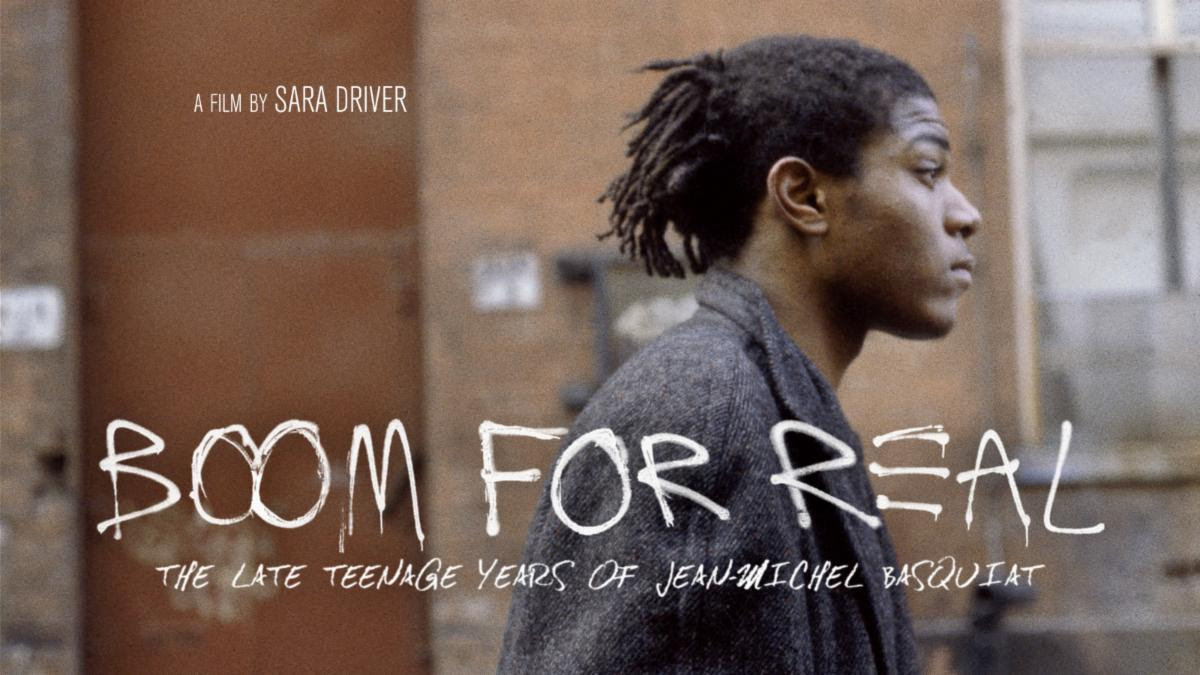
Boom for Real: The Late Teenage Years of Jean-Michel Basquiat
The life and times of a prefame Jean-Michel Basquiat are recreated in this vivid evocation of downtown New York in the 1970s.
Monday, April 25
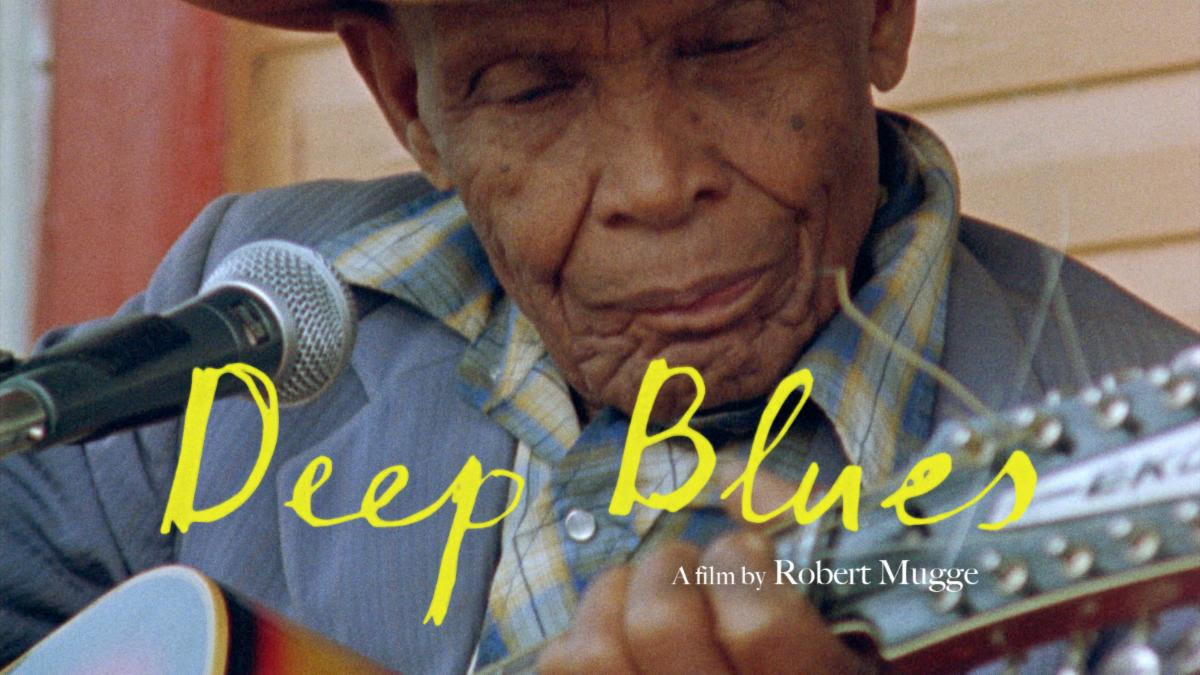
Deep Blues
Venture deep into the heart of the Mississippi Delta to discover the best local blues artists working outside the mainstream recording industry.
More documentaries featured in this month’s programming:
- Prismatic Ground Presents
- The Blues Accordin’ to Lightnin’ Hopkins, Les Blank, 1970
- Be Pretty and Shut Up!, Delphine Seyrig, 1976
- First Person Plural, Deann Borshay Liem, 2000
- Refugee, Spencer Nakasako, 2003
- I Was Born But …, Roddy Bogawa, 2004
- The Betrayal, Thavisouk Phrasavath and Ellen Kuras, 2008
- Bring Down the Walls, Phil Collins, 2020
SATURDAY MATINEES
Saturday, April 2

Jane Eyre
Samantha Morton and Ciarán Hinds star in this superlative adaptation of Charlotte Brontë’s classic novel.
Saturday, April 9

Quill: The Life of a Guide Dog
Told with refreshingly unsentimental, documentary-like naturalism, this Japanese drama is an exquisitely touching look at the relationship between humans and animals.
Saturday, April 16
The Robe
The first movie ever filmed in CinemaScope stands as a monumental exemplar of studio-era Hollywood filmmaking at its grandest and most spare-no-expense lavish.
Saturday, April 23
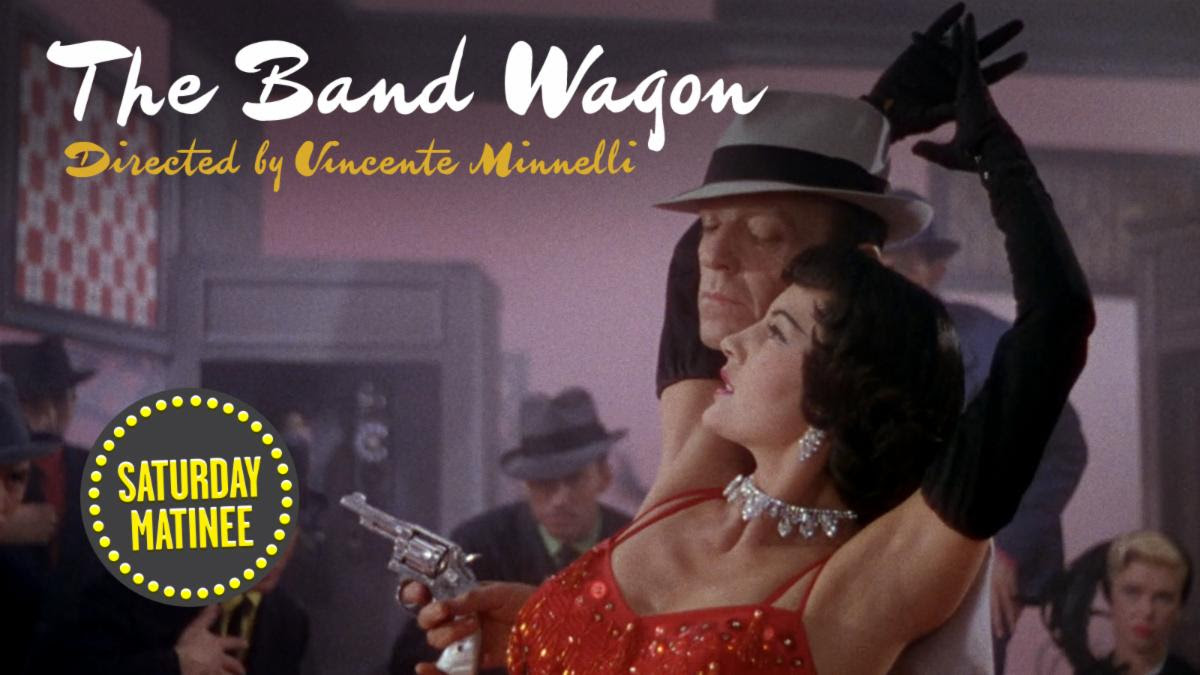
The Band Wagon
Fred Astaire puts on a show for the ages in this Vincente Minnelli–directed dazzler, one of the greatest of the beloved musicals to emanate from the MGM dream factory.
Saturday, April 30
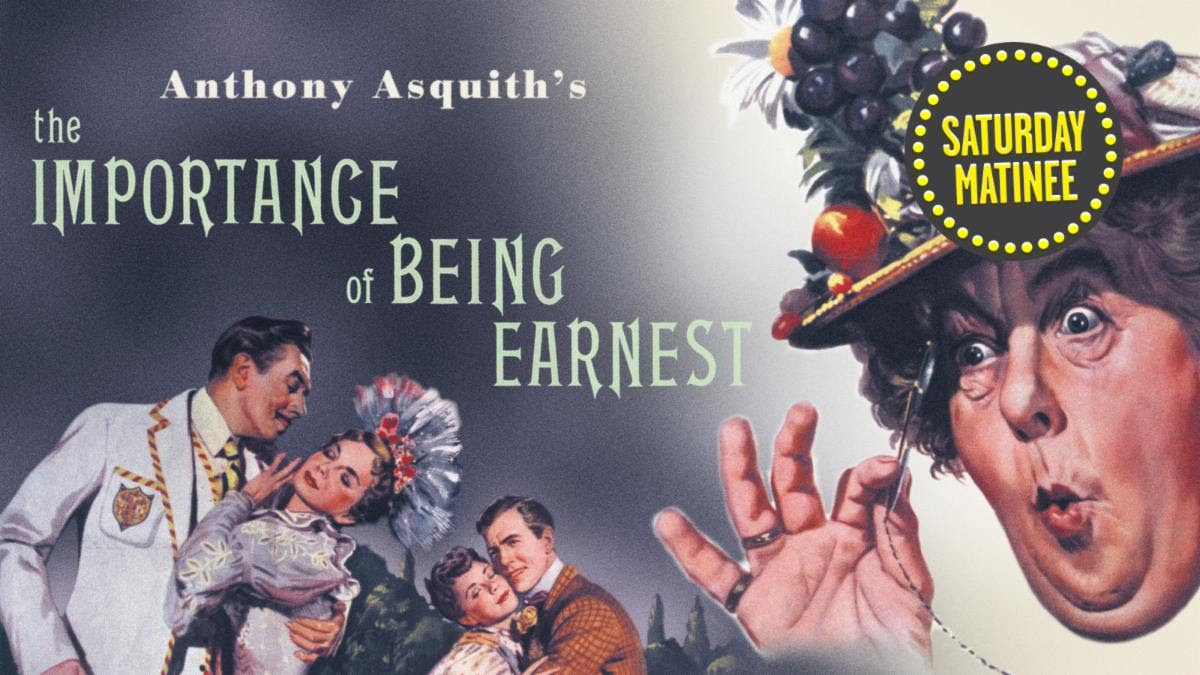
The Importance of Being Earnest
Oscar Wilde’s comic jewel sparkles in Anthony Asquith’s grand Technicolor screen adaptation.
SHORT-FILM PROGRAMS
Tuesday, April 5
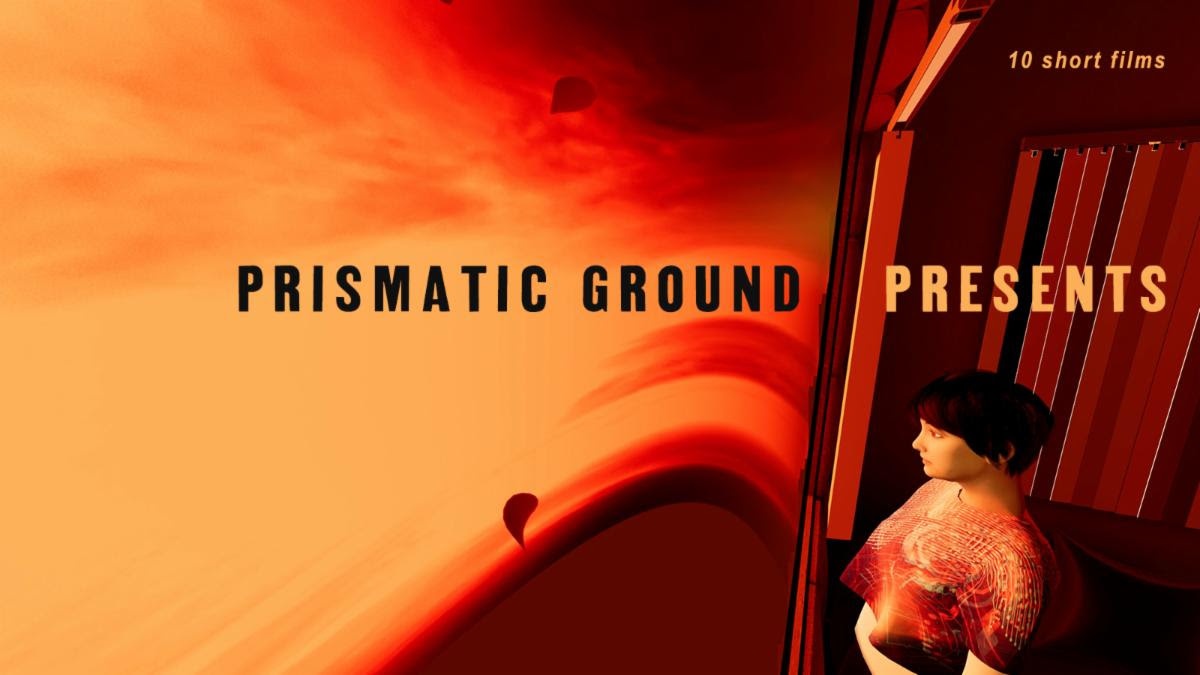
Prismatic Ground Presents
One of the most creative and galvanizing venues for film exhibition to emerge during the pandemic, Prismatic Ground is a festival centered on the intersection between experimental and documentary film. This selection of shorts from its first edition in April 2021 offers an eclectic cross section of formally and politically radical work. Highlighting filmmakers whose approach to image-making eschews traditional narrative in favor of abstraction and sensation—and whose techniques span animation, archival collage, 16 mm photography, and digital technology—Prismatic Ground shows how avant-garde practices can be deployed to confront violent histories of colonialism, genocide, and capitalism, introducing audiences to a cinema of radical potential.
- Loose Corner, Anita Thacher, 1986
- Reckless Eyeballing, Christopher Harris, 2004
- Maat, Fox Maxy, 2020
- A New England Document, Che Applewhaite, 2020
- Letter From Your Far-Off Country, Suneil Sanzgiri, 2020
- A Demonstration, Sahsa Litvintseva and Beny Wager, 2020
- my favorite software is being here, Alison Nguyen, 2021
- Two Sons and a River of Blood, Amber Bemak and Angelo Madsen Minax, 2021
- Melting Snow, Janah Elise Cox, 2021
- Bodies in Dissent, Ufuoma Essi, 2021
Tuesday, April 12
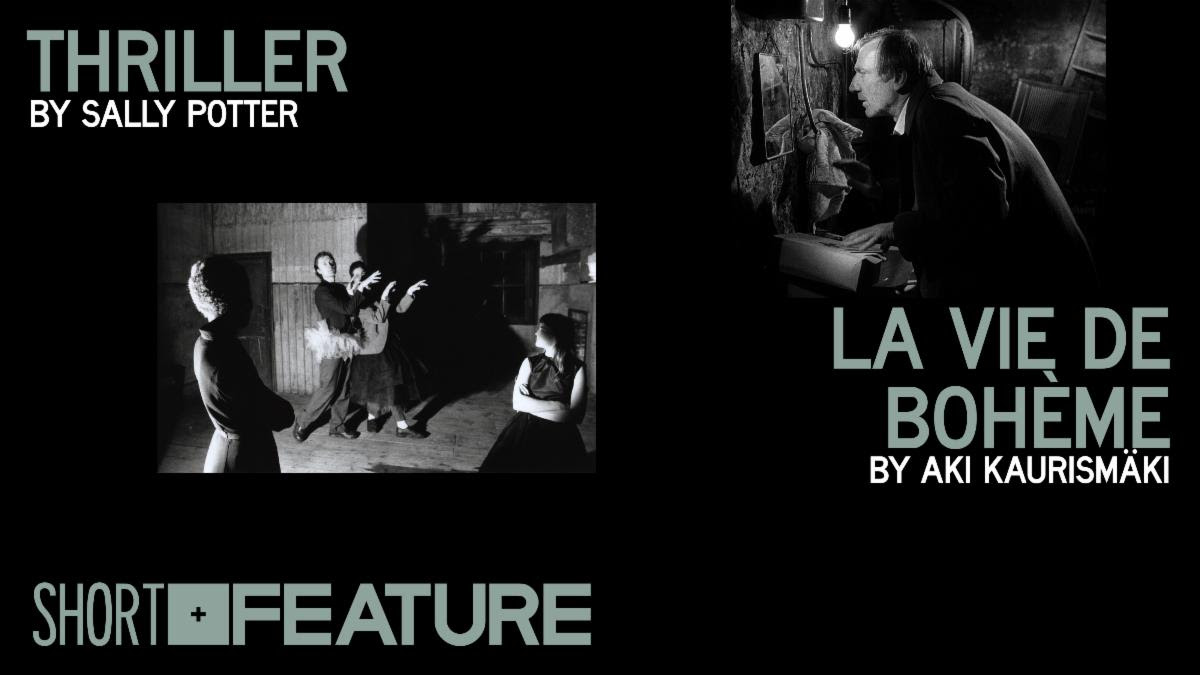
Bohemian Rhapsodies
Thriller and La vie de bohème
Sally Potter and Aki Kaurismäki put their distinctive directorial stamps on a classic story of art, love, and the immortal allure of Paris.
Tuesday, April 19
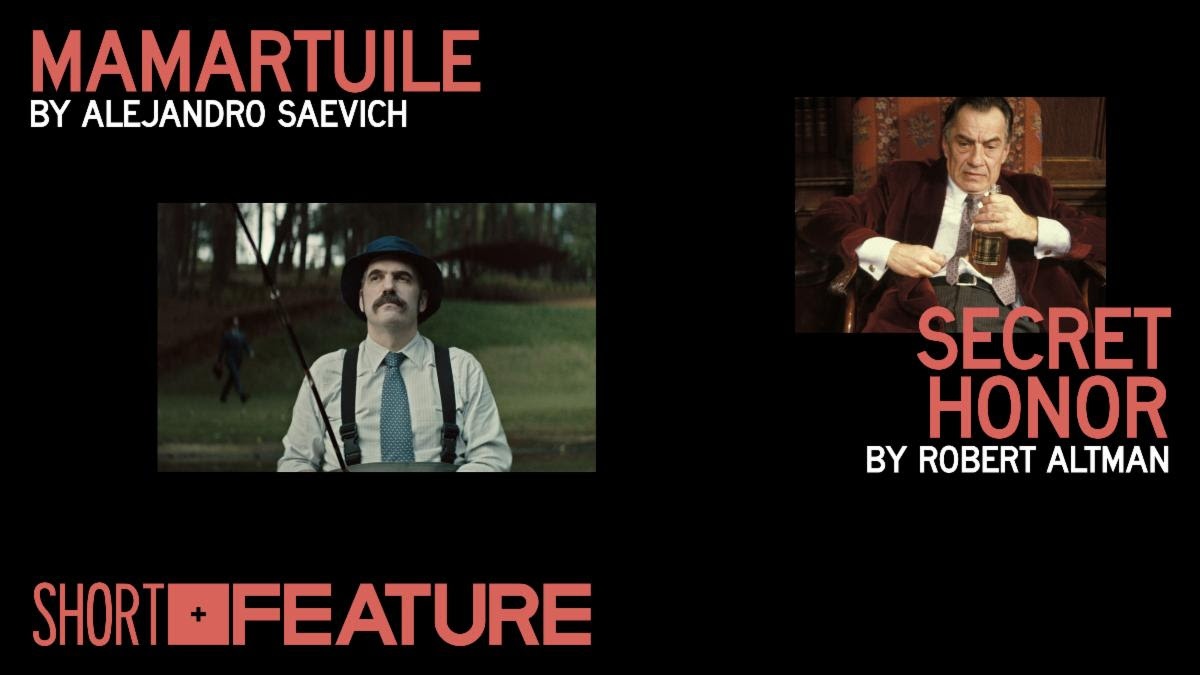
Commanders in Grief
Mamartuile and Secret Honor
A pair of presidential satires explore the light and dark sides of being a country’s most powerful figurehead—and what happens when it all goes terribly wrong.
Tuesday, April 26
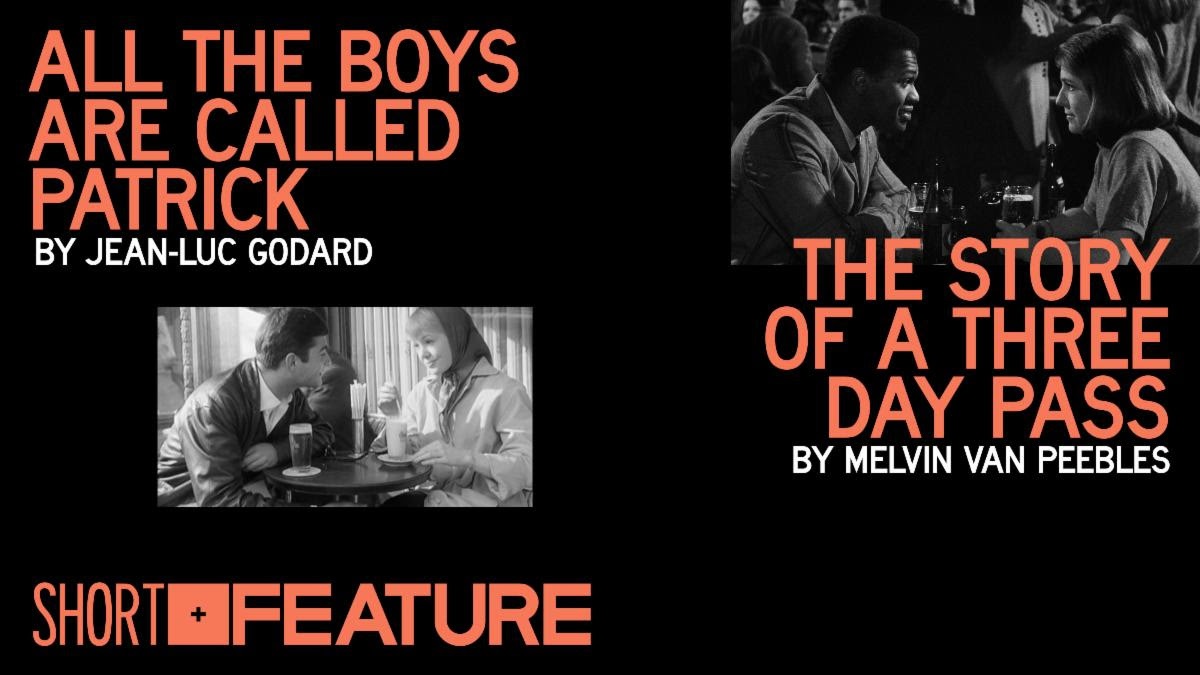
Making New Waves
All the Boys Are Called Patrick and The Story of a Three Day Pass
Actor and early French New Wave regular Nicole Berger is at the center of two romantic trysts in these foundational works from Jean-Luc Godard and Melvin Van Peebles.
DOUBLE FEATURES
Friday, April 1

NSFWC
Million Dollar Legs and The Bank Dick
The cranky genius of ur-curmudgeon W. C. Fields is on display in a pair of outrageous comedy classics.
Friday, April 8
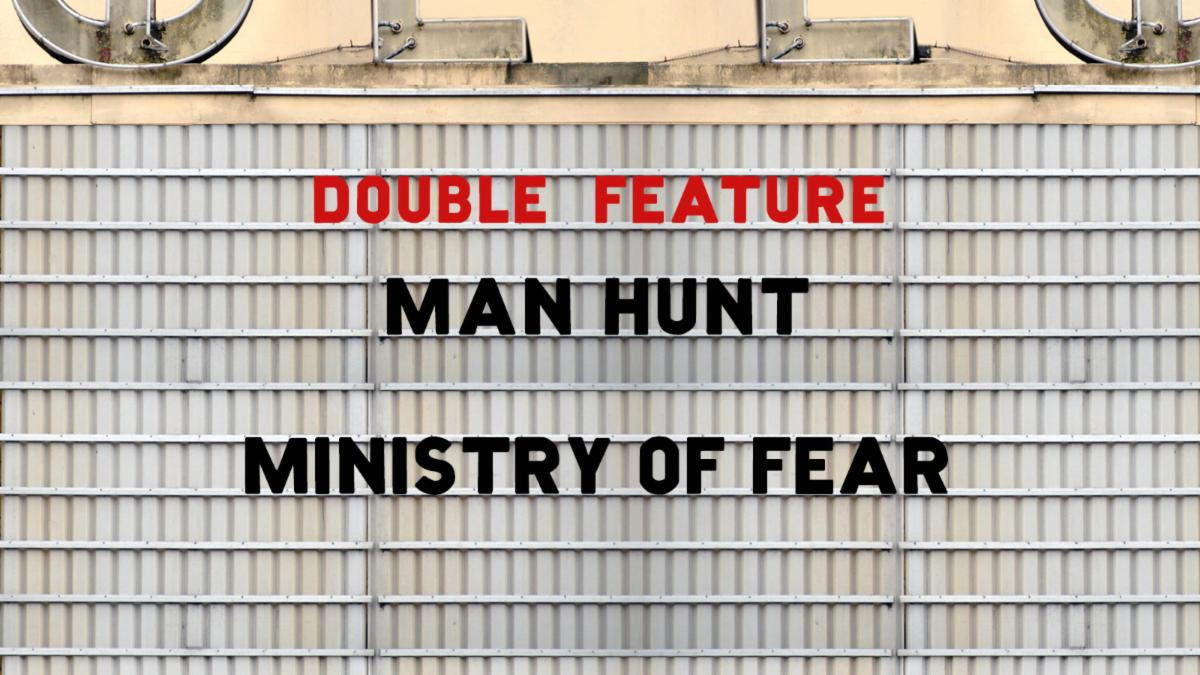
Fritzkrieg!
Man Hunt and Ministry of Fear
Two stylish anti-Nazi thrillers from Fritz Lang transcend propaganda with their expert craftsmanship and bleak air of noir fatalism.
Friday, April 15
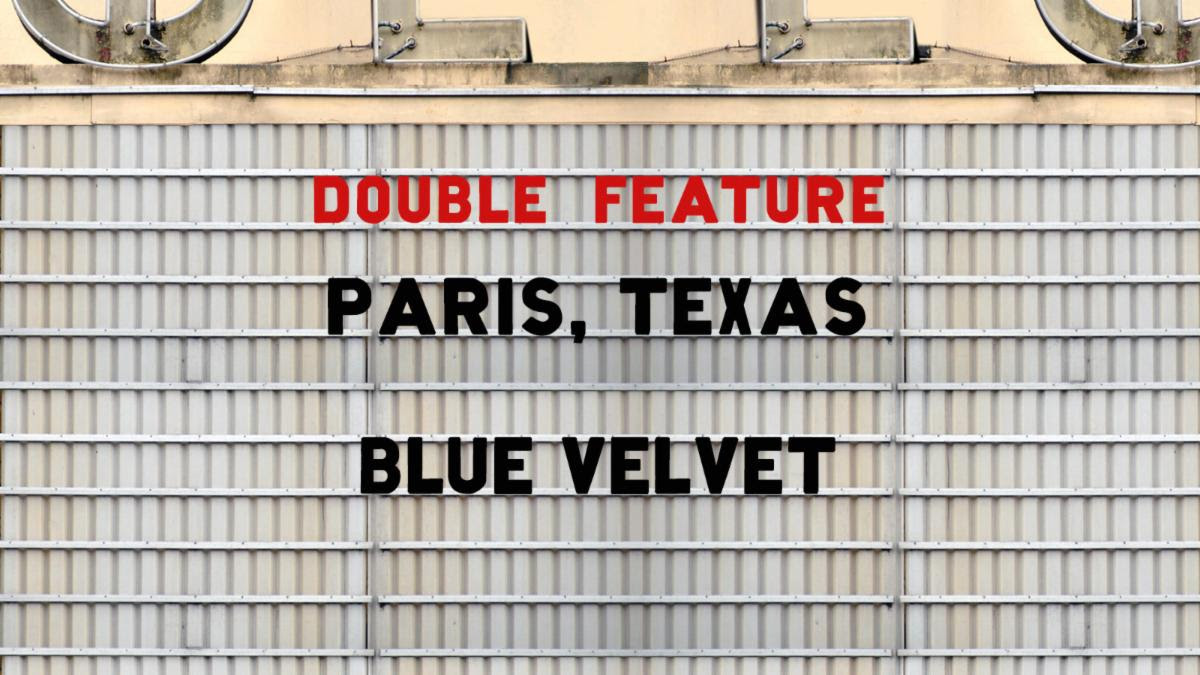
Called to the Dean
Paris, Texas and Blue Velvet
The late, great Dean Stockwell shows two sides—melancholy and soulful, then menacingly creepy—in a pair of 1980s art-house sensations.
Friday, April 22

Vicious Cycles
Rockers and Bicycle Thieves
The search for a stolen bike sets off vivid odysseys through Kingston and Rome in a definitive reggae classic and the Italian neorealist touchstone that inspired it.
Friday, April 29
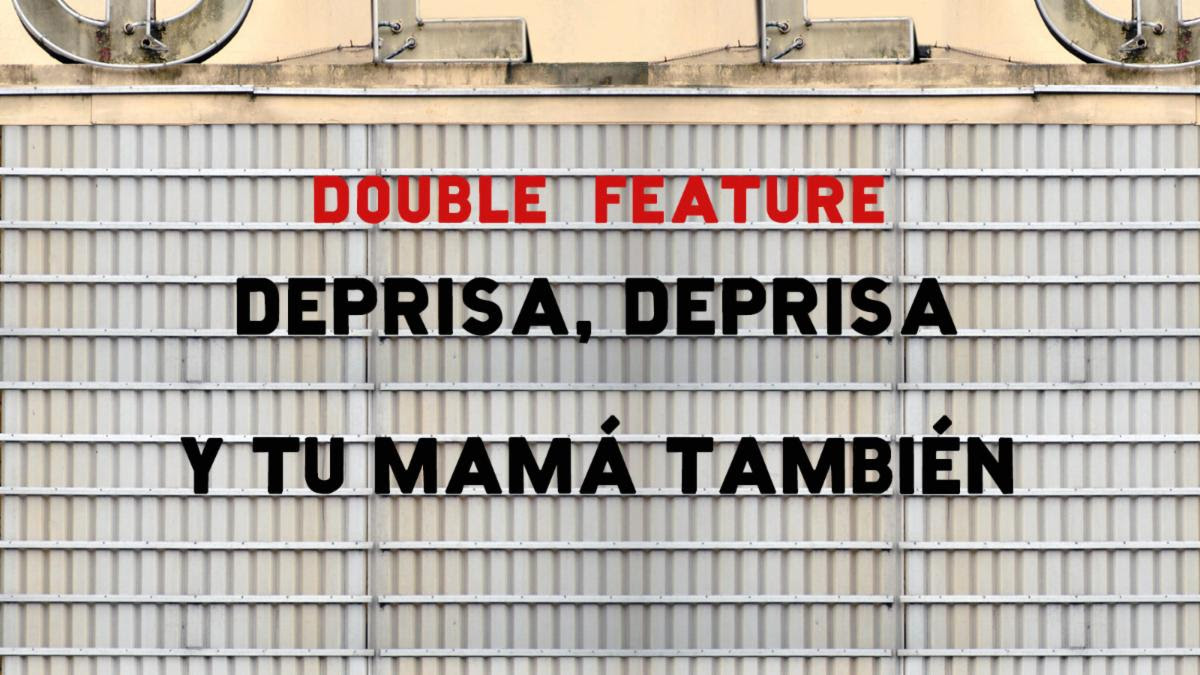
The Fast Lane
Deprisa, deprisa and Y tu mamá también
Hit the road with a pair of whirlwind journeys through Spain and Mexico infused with the ecstatic rebel spirit of youth.
Complete list of films premiering on the Criterion Channel this month:
- 3 Bad Men, John Ford, 1926
- Aar paar, Guru Dutt, 1954
- Accident, Joseph Losey, 1967
- Across 110th Street, Barry Shear, 1972
- Adam, Maryam Touzani, 2019
- Baaz, Guru Dutt, 1953
- Balikbayan, Larilyn Sanchez and Riza Manalo, 2004
- Barrier Device, Grace Lee, 2002
- Baxter, Vera Baxter, Marguerite Duras, 1977
- Be Pretty and Shut Up!, Delphine Seyrig, 1981
- The Betrayal, Ellen Kuras and Thavisouk Phrasavath, 2008
- Black Belt Jones, Robert Clouse, 1974
- Black Caesar, Larry Cohen, 1973
- The Black Watch, John Ford, 1929
- Blue Velvet, David Lynch, 1986
- Bodies in Dissent, Ufuoma Essi, 2021
- Boom for Real: The Late Teenage Years of Jean-Michel Basquiat, Sara Driver, 2017*
- Born Reckless, John Ford, 1930
- Bring Down the Walls, Phil Collins, 2020
- Buffalo Bill and the Indians, or Sitting Bull’s History Lesson, Robert Altman, 1976
- Cavite, Ian Gamazon, Neill Dela Llana, 2005
- The Chambermaid, Lila Avilés, 2018
- Chaudhvin ka chand, M. Sadiq, 1960
- Colma: The Musical, Richard Wong, 2006
- Daughters of Darkness, Harry Kümel, 1971
- Deep Blues, Robert Mugge, 1992
- A Demonstration, Sasha Litvintseva and Beny Wagner, 2020
- Doctor Bull, John Ford, 1933
- A Doll’s House, Joseph Losey, 1973
- First Person Plural, Deann Borshay Liem, 2000
- Four Sons, John Ford, 1928
- France, Bruno Dumont, 2021
- Friday Foster, Arthur Marks, 1975
- Going Home, Hung Nguyen, 2006
- The Hawks and the Sparrows, Pier Paolo Pasolini, 1966
- A Hell of a Note, Eagle Pennell, 1977
- How Green Was My Valley, John Ford, 1941
- I Was Born, But …, Roddy Bogawa, 2004
- In Between Days, So Yong Kim, 2006
- In Search of Guru Dutt, Nasreen Munni Kabir, 1989
- In Space, Visra Vichit-Vadakan, 2009
- India Song, Marguerite Duras, 1975
- J.D.’s Revenge, Arthur Marks, 1976
- Jane Eyre, Robert Young, 1997
- Journey from the Fall, Ham Tran, 2006
- Judge Priest, John Ford, 1934
- Paper Flowers, Guru Dutt, 1959
- Kentucky Pride, John Ford, 1925
- The King of Texas, René Pinnell, Claire Huie, 2008
- Last Night at the Alamo, Eagle Pennell, 1983
- The Last Picture Show, Peter Bogdanovich, 1971
- Last Year at Marienbad, Alain Resnais, 1961
- Letter From Your Far-Off Country, Suneil Sanzgiri, 2020
- The Life and Times of Judge Roy Bean, John Huston, 1972
- Loose Corner, Anita Thacher, 1986
- Maat, Fox Maxy, 2020
- Mamartuile, Alejandro Saevich, 2017
- Man Hunt, Fritz Lang, 1941
- Melting Snow, Janah Elise Cox, 2021
- Men Without Women, John Ford, 1930
- The Milky Way, Luis Buñuel, 1969
- Ministry of Fear, Fritz Lang, 1944
- Mr. & Mrs. ’55, Guru Dutt, 1955
- my favorite software is being here, Alison Nguyen, 2021
- My Worst Nightmare, Anne Fontaine, 2011
- A New England Document, Che Applewhaite, 2020
- Original Gangstas, Fred Williamson and Larry Cohen, 1996
- Pilgrimage, John Ford, 1933
- Pirated!, Hoang Tan Nguyen, 2000
- Punching at the Sun, Tanuj Chopra, 2006
- Pyaasa, Guru Dutt, 1957
- Quill: The Life of a Guide Dog, Yoichi Sai, 2004
- Reckless Eyeballing, Christopher Harris, 2004
- Refugee, Spencer Nakasako, 2003
- The Robe, Henry Koster, 1953
- Sahib bibi aur ghulam, Abrar Alvi, 1962
- Sangam, Prashant Bhargava, 2004
- Saving Face, Alice Wu, 2004*
- Seven Women, Seven Sins, Maxi Cohen, Laurence Gavron, Bette Gordon, Helke Sander, Ulrike Ottinger, Chantal Akerman, and Valie Export, 1986
- Shaft’s Big Score!, Gordon Parks, 1972
- Steamboat Round the Bend, John Ford, 1935
- Sugar Hill, Paul Maslansky, 1974
- Summer of the Serpent, Kimi Takesue, 2004
- Thomasine and Bushrod, Gordon Parks Jr., 1974
- Three the Hard Way, Gordon Parks Jr., 1974
- Thriller, Sally Potter, 1980
- Through the Night, Loira Limbal, 2020
- Tobacco Road, John Ford, 1941
- Top of the Heap, Christopher St. John, 1972
- Trouble Man, Ivan Dixon, 1972
- Truck Turner, Jonathan Kaplan, 1974
- Two Sons and a River of Blood, Amber Bemak and Angelo Madsen Minax, 2021
- What Price Glory, John Ford, 1952
- Wheel of Fortune and Fantasy, Ryusuke Hamaguchi, 2021
- The Whole Shootin’ Match, Eagle Pennell, 1978
- Windowbreaker, Tze Chun, 2006
- The World Moves On, John Ford, 1934
- Young Mr. Lincoln, John Ford, 1939
*Available in the U.S. only


